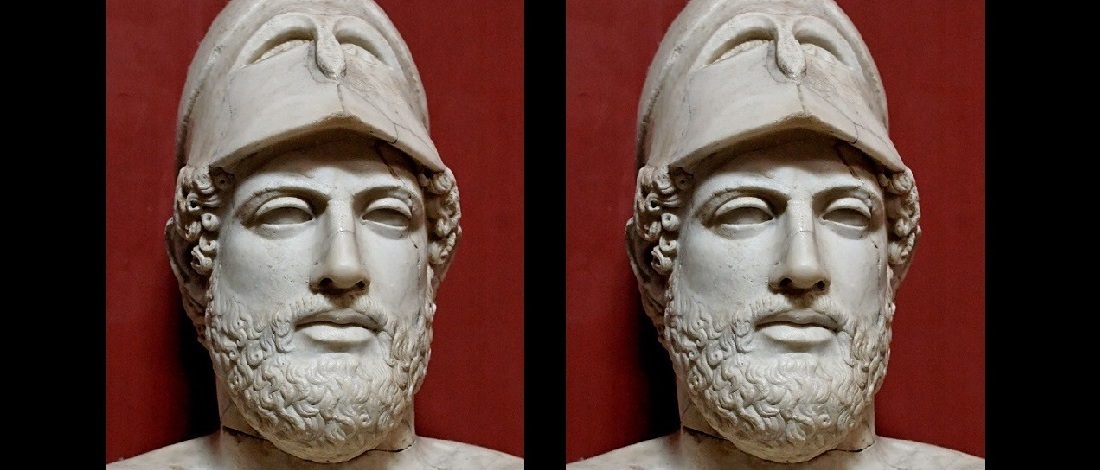Pericles
Posted on 24th December 2020
The most prominent, influential Greek statesman, orator and general of Athens, Pericles name means ‘surrounded by glory’.
Pericles was born around 495BC in a suburb (deme) of Cholargos, north of Athens; his father Xanthippus was a politician and hero of the Persian wars; his mother Agariste was a member of a wealthy, powerful and yet controversial family.
In his early years Pericles was an unassuming, introverted young man who spent his time quietly, avoiding public appearances; he dedicated his time to his studies and excelled at them. The wealth of his family allowed him an extensive education in ethics, philosophy, rhetoric, mathematics and music.
Pericles married a close relative and had two sons Paralus and Xanthippus; the name of his wife is unknown although he was to divorce her. His true affection was to Aspasia of Miletus and he lived with her as if husband and wife and they had a son Pericles the Younger.
Considered to have been the first politician to have attributed an importance to philosophy he enjoyed the company of philosophers including Anaxagoras who became a close friend and later in life would influence him greatly; it is believed that his association with Anaxagoras led to his calmness and self-control in life.
Being wealthy, Pericles became a great patron of the arts; he sponsored the playwright Aeschylus with his play ‘The Persians’ and saw to the rebuilding of the Parthenon and Acropolis. Athens was to become the centre of arts, literature and culture and Pericles became very popular with the people.
In 463BC Pericles was to lead the prosecution of Cimon (his political rival) who was accused of neglecting Athens interests in Macedon. Cimon was acquitted of the charge however the prosecution showed Pericles his own vulnerabilities.
Around 461BC the most powerful council in the state (Areopagus) was controlled by the aristocrats. Pericles mentor, and leader of the democratic party Ephialtes proposed a change in the Areopagus powers; the Athenian Assembly (Ecclesia) agreed and the Areopagus was stripped of its powers.
This moved Pericles to the forefront of Athenian politics, however Cimon tried to increase his own popularity by using his personal fortune to hand out lavish gifts. This was not to improve his standing and Pericles ostracized Cimon for betraying Athens and aiding Sparta.
Pericles led many military missions during the Peloponnesian wars including recapturing Delphi from the Spartans in 448BC. He was a leading statesman and made many popular laws including: the poor being able to watch theatrical plays without having to pay. He was also to allow the lower classes to enter public office.
Although Pericles was popular with the general classes, the aristocratic class were against him, with accusations levied at them. His companion Aspasia was accused of corrupting the women of Athens although she was later acquitted; his friends were also to suffer; Phidias was to die in prison and Anaxagoras was attacked for his religious beliefs.
Pericles remained in charge of Athens until his death of the Plague in 429BC which also took the lives of his two sons by his former wife and his sister.
Following his death, a change in the law allowed his son by his mistress Aspasia to become his legitimate heir.
Tagged as: Junior Ancient Greece
Share this post:





